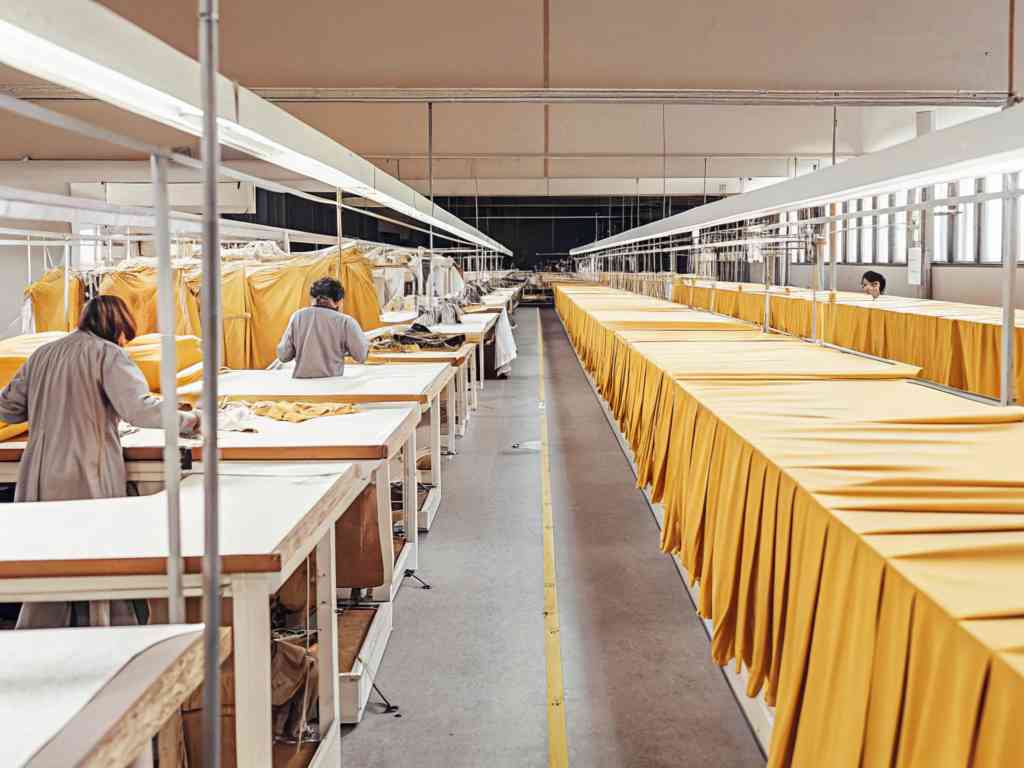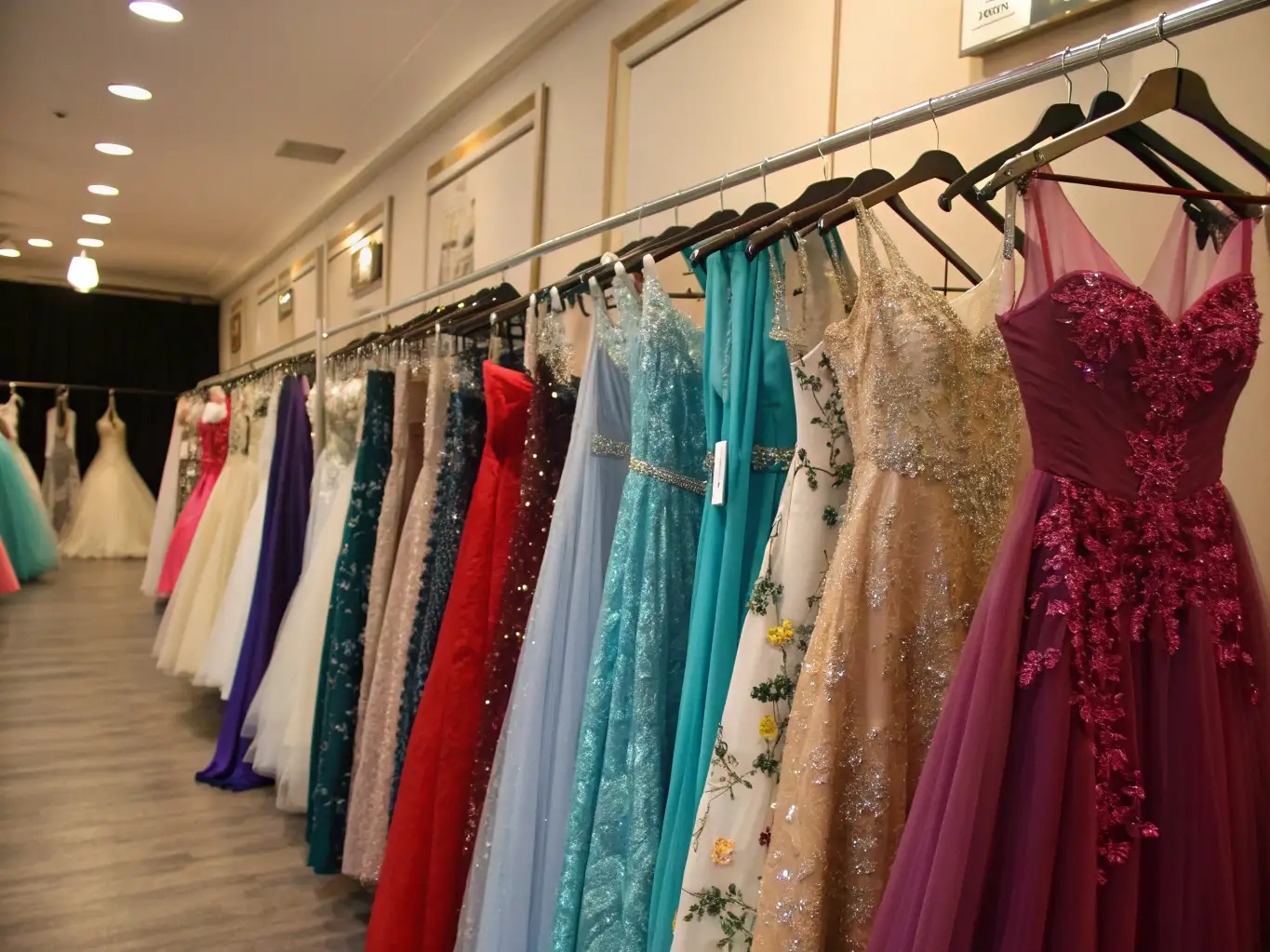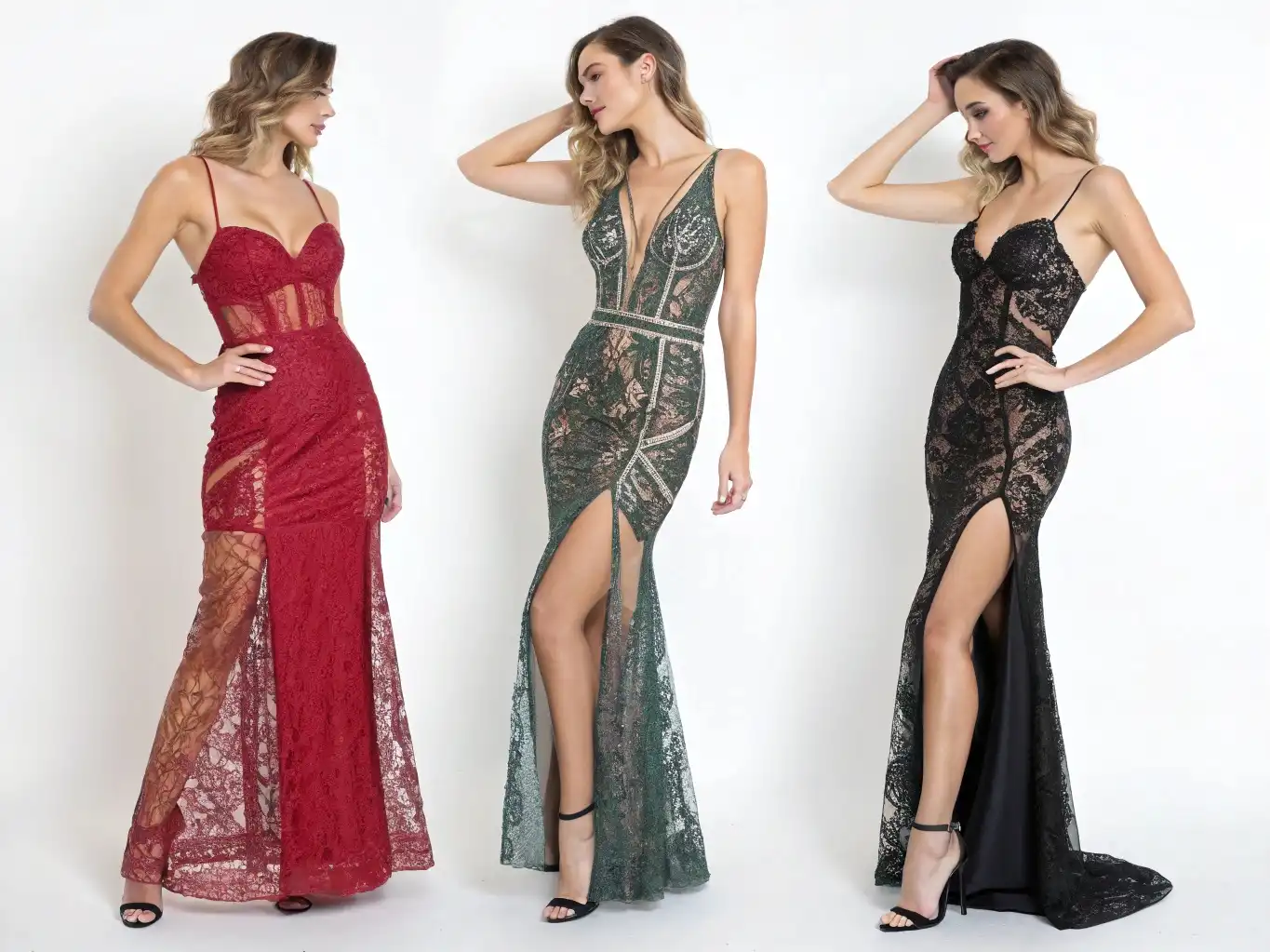Turkey has quietly become one of the most powerful clothing manufacturing hubs for European and global fashion brands. From fast fashion to luxury knitwear, Turkish factories are making a name for themselves.
Major Turkish garment factories1 like Yesim Textile, Sanko, and Ekoten serve brands like Zara, H&M, and Mango. They are known for high-quality textiles, ethical production, and short lead times due to Turkey’s geographic advantage.
I’ve worked with Turkish suppliers on multiple boutique collections. Their flexibility and quality often outperform suppliers twice the distance away.
Why Is Turkey a Major Hub for Clothing Manufacturing?
Turkey isn’t just a backup for China—it’s a fashion-forward, EU-friendly powerhouse.
Turkey combines world-class textile heritage, modern manufacturing infrastructure, and strategic logistics advantages, making it a go-to sourcing region for fashion brands.
 Yellow fabric production line.
Yellow fabric production line.
What Makes Turkish Clothing Factories Competitive in Quality and Price?
| Advantage | Impact |
|---|---|
| In-house textile production | High fabric control & faster lead time |
| EU Customs Union | Duty-free trade with Europe |
| Advanced machinery | Competitive with Western Europe in quality |
| Skilled workforce | Strong QC and tailored garment expertise |
While prices aren’t as low as Bangladesh, the savings on logistics, quality control, and communication often make up the difference.
How Does Turkey’s Strategic Location Benefit Global Fashion Brands?
| Location Benefit | Strategic Value |
|---|---|
| Proximity to Europe | Shorter shipping time (2–7 days) |
| Time zone alignment | Easier real-time collaboration |
| Access to both EU and MENA markets | Broader distribution potential |
This location allows for quick restocks and efficient market response—perfect for fast fashion brands.
Top 5 Well-Known Clothing Manufacturers in Turkey
These factories aren’t just big—they’re trusted by the biggest names in fashion.
The top Turkish garment factories include Yesim, Sanko, Ekoten, Orta Anadolu, and Cross Textiles. They offer high volume, sustainability, and private label solutions for global brands.
Who Are the Leading Exporters Serving Zara, H&M, and Mango?
| Factory | Location | Key Clients | Core Products |
|---|---|---|---|
| Yesim Textile | Bursa | Zara, Nike, Puma | Activewear, underwear |
| Sanko Textile | Gaziantep | H&M, Marks & Spencer | Cottonwear, home textiles |
| Orta Anadolu | Kayseri | Levi’s, Calvin Klein | Premium denim |
| Cross Textiles | Denizli | Inditex, Bershka | Streetwear, casualwear |
These factories are known for vertical integration and eco-compliance, which keeps them in high demand.
Which Turkish Factories Specialize in Sustainable and Organic Apparel?
| Factory | Sustainability Certification | Product Focus |
|---|---|---|
| Ekoten Tekstil | GOTS, OEKO-TEX, ISO 14001 | Organic knitwear |
| Kipas Holding | Better Cotton Initiative (BCI) | Denim & wovenwear |
| Söktaş | GOTS, ZDHC, bluesign® | Shirts, formalwear |
Turkey’s access to local organic cotton and EU-aligned audits makes it a leader in sustainable sourcing2.
What Types of Clothing Do Turkish Manufacturers Excel In?
Every region has its strengths—Turkey’s niche is high-quality, fashion-forward production.
Turkey excels in denim, activewear, knitwear, and small-batch boutique collections. They blend fabric innovation with modern European fashion sensibilities.
Is Turkey Best for Denim, Streetwear, or Luxury Knitwear Production?
| Product Category | Turkey’s Advantage |
|---|---|
| Denim | Orta Anadolu and Calik Denim offer premium, sustainable denim |
| Streetwear | Cross Textiles and Eroğlu Group handle embroidery, pigment dyeing, oversized cuts |
| Knitwear | Ekoten leads in fine-knit viscose, modal, and organic yarns |
I’ve personally sourced Turkish knitwear that rivals Italian quality—at half the cost.
Do Turkish Factories Support Small MOQs for Boutique Brands?
Yes, many Turkish suppliers support low-volume production.
| MOQ Range | Factory Type | Ideal For |
|---|---|---|
| 100–300 pcs/style | Boutique factories, knitwear specialists | Emerging DTC brands |
| 500–1,000 pcs | Mid-size OEM/ODM partners | Seasonal or regional retailers |
| 5,000+ pcs | Large-scale exporters (e.g. Yesim, Sanko) | Chain stores, fast fashion |
Compared to China or India, Turkey offers better MOQ flexibility, especially for ready-to-dye or ready-to-print blanks.
How to Connect with Reliable Turkish Clothing Factories
Finding a Turkish factory isn’t hard—but verifying them is key.
Use official directories like Turkishexporters.net or Kompass Turkey. Attend trade shows like IFCO Istanbul or Texhibition to meet verified manufacturers face-to-face.
Should You Use Directories Like Turkishexporters.net or Attend Trade Fairs Like IFCO Istanbul?
| Resource | What It Offers | Best For |
|---|---|---|
| Turkishexporters.net | Business directory with factory profiles | Supplier shortlisting |
| IFCO Istanbul (Istanbul Fashion Connection) | Largest fashion sourcing event in Turkey | Direct factory contact |
| Texhibition Istanbul | Focus on fabrics, yarn, sourcing networks | Textile & fabric development |
At IFCO, I met four suppliers in two days—one of them still produces my bestselling hoodie to this day.
Can You Find Verified Turkish Manufacturers on B2B Platforms Like Alibaba or Kompass?
Yes, but be strategic.
| Platform | Tip |
|---|---|
| Alibaba | Use “country filter” and choose “verified supplier” |
| Kompass | Search by NAICS/SIC code for apparel manufacturing |
| Look up Turkish factory managers or sourcing directors | |
| Export.gov & TradeMap.org | Analyze export data for top-performing Turkish firms |
Always request a video call and third-party inspection before committing to large production.
What to Know Before Partnering with Turkish Clothing Suppliers
Doing business in Turkey is smoother than many assume—but there are a few differences to understand.
Most Turkish factories offer OEM and ODM services3 with quick turnarounds. English is widely spoken in business, but cultural awareness and clear tech packs still matter.
Do Turkish Manufacturers Offer Private Label or OEM/ODM Services?
| Service | Availability | Notes |
|---|---|---|
| OEM | Very common | You supply designs, they manufacture |
| ODM | Available at larger factories | They offer ready-made designs with your label |
| Private Label | Standard in streetwear and basics | Shorter lead time, lower development cost |
Most factories have in-house pattern teams and sampling departments, which speeds up development.
How Do Language, Customs, and Lead Time Compare with Asian Suppliers?
| Factor | Turkey | Asia (e.g., China/Bangladesh) |
|---|---|---|
| Lead Time | 3–5 weeks | 6–12 weeks |
| Shipping Time to EU | 2–7 days by truck/air | 25–40 days by sea |
| Language | Business English common | Requires more context clarification |
| Holidays | Ramadan, Bayram | CNY, Diwali (can delay for weeks) |
With less time zone difference, you can resolve issues quickly—often the same day.
Conclusion
Turkey is more than an alternative—it’s a strategic partner for fashion brands who value quality, speed, and sustainable sourcing. From boutique start-ups to fast fashion giants, the best Turkish factories offer world-class service with European sensibility.
-
Explore this link to discover the leading Turkish garment factories that are shaping the fashion industry with quality and sustainability. ↩
-
Learn about Turkey’s sustainable sourcing practices and how they benefit global fashion brands by clicking this link. ↩
-
Find out how Turkish manufacturers provide OEM and ODM services that can streamline your production process by visiting this resource. ↩





